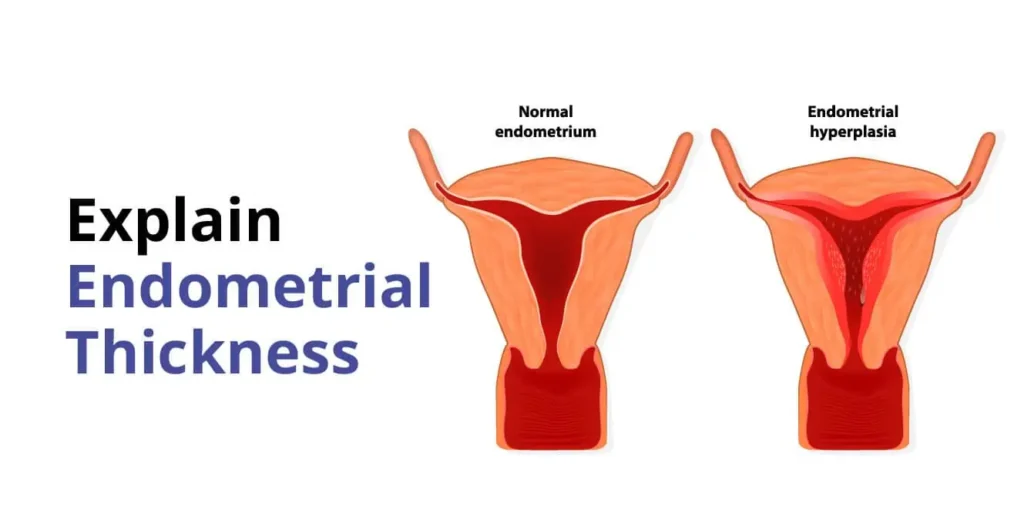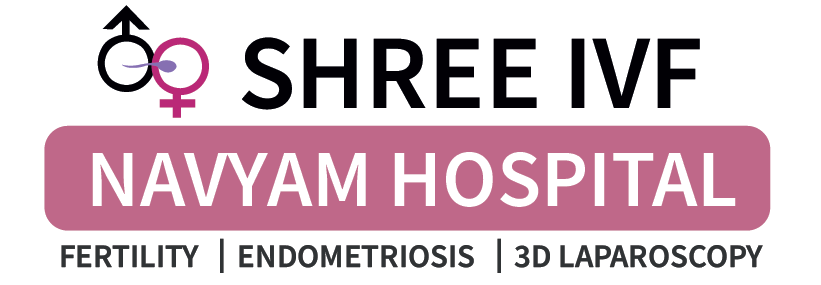
- The endometrium plays a crucial role in your reproductive health. Its thickness varies throughout your menstrual cycle and life stages, and understanding these changes can help you identify potential issues. Whether you are trying to conceive or experiencing unusual symptoms, knowing what’s normal when it comes to endometrial thickness is essential.
How to Increase Endometrial Thickness for IVF: Tips and Treatment Options
The thickness of the endometrial lining plays a crucial role in the success of In Vitro Fertilization (IVF). A thick and healthy endometrium is essential for embryo implantation and pregnancy. If the lining is too thin, it can reduce the chances of successful implantation. Thankfully, there are several methods to help increase endometrial thickness and optimize the chances of IVF success.
Here’s a guide on how to increase endometrial thickness for IVF:
1. Medications and Hormonal Treatments
- Estrogen Therapy: The most common treatment to increase endometrial thickness is estrogen supplementation. Estrogen helps stimulate the growth of the endometrial lining, making it thick enough for embryo implantation. Your doctor may prescribe oral, patch, or injectable forms of estrogen during an IVF cycle.
- Progesterone Supplements: Progesterone is another essential hormone that prepares the endometrium for embryo implantation. Sometimes, progesterone is used in combination with estrogen to enhance endometrial receptivity.
2. Blood Flow Improvement
- Low-Dose Aspirin or Heparin: In some cases, doctors may recommend low-dose aspirin or heparin to improve blood flow to the uterus. This increased circulation can help nourish the endometrial lining and promote its growth. However, this treatment is typically prescribed on a case-by-case basis.
- L-arginine: L-arginine is an amino acid that helps improve blood flow by increasing nitric oxide production, which can improve uterine blood flow and promote endometrial growth.
3. Acupuncture
Acupuncture has been shown to improve uterine blood flow and increase the thickness of the endometrial lining. Some studies suggest that acupuncture can help improve fertility outcomes and enhance the chances of successful IVF implantation by promoting a healthier uterine environment. Acupuncture treatments are typically used in conjunction with other medical treatments for optimal results.
4. Nutritional Support
A healthy diet can play an important role in improving endometrial thickness. Some recommended dietary tips include:
- Vitamin E: Vitamin E is believed to improve blood flow and enhance the quality of the endometrial lining. It is commonly recommended as a supplement during IVF cycles.
- Vitamin D: Low levels of vitamin D have been associated with poor endometrial thickness. Supplementing with vitamin D may help support the growth of the endometrial lining.
- Healthy Fats: Omega-3 fatty acids, found in foods like fish, nuts, and seeds, can help improve circulation and hormone levels, which may aid in the development of a thick and healthy endometrium.
- Iron-Rich Foods: Iron is important for improving blood flow and nourishing the uterine lining. Include iron-rich foods like leafy greens, beans, and lean meats in your diet.
5. Hydration
Staying well-hydrated is essential for overall health and can improve blood circulation to the uterus, helping the endometrial lining grow and thicken. Drink plenty of water throughout the day to support your fertility treatment.
6. Lifestyle Modifications
- Regular Exercise: Engaging in regular, moderate exercise can improve circulation and hormone balance, which may help the endometrium grow. However, intense or excessive exercise should be avoided as it can negatively affect hormone levels and fertility.
- Stress Reduction: Chronic stress can interfere with hormonal balance, potentially impacting endometrial thickness. Relaxation techniques like yoga, meditation, and deep breathing can help reduce stress levels and promote a healthier uterine environment.
7. Ultrasound Monitoring
During IVF treatment, your doctor will use ultrasound to monitor the development of your endometrial lining. This allows the fertility specialist to assess whether the lining is thick enough for embryo transfer and to adjust your treatment accordingly.
8. Endometrial Scratching
In some cases, a procedure called endometrial scratching may be recommended to help improve implantation rates. This involves lightly scratching or creating micro-injuries in the endometrial lining, which can promote healing and stimulate the growth of a thicker, more receptive lining. The procedure is typically done a few weeks before IVF to enhance endometrial receptivity.
9. Platelet-Rich Plasma (PRP) Therapy
Platelet-Rich Plasma (PRP) therapy is a newer treatment for women with thin endometrial linings. PRP involves injecting the patient’s own blood plasma (rich in platelets and growth factors) into the uterine lining to promote tissue growth and improve blood flow. This procedure has shown promising results in some women, though further research is needed.
Conclusion
Increasing endometrial thickness is an important factor in improving the chances of successful embryo implantation during IVF. By following a combination of medical treatments, lifestyle changes, and dietary adjustments, many women can enhance the quality of their endometrial lining. If you’re undergoing IVF, it’s essential to work closely with your fertility specialist to develop a personalized plan to optimize your uterine environment. With the right approach and support, the chances of achieving a successful pregnancy can significantly improve.


